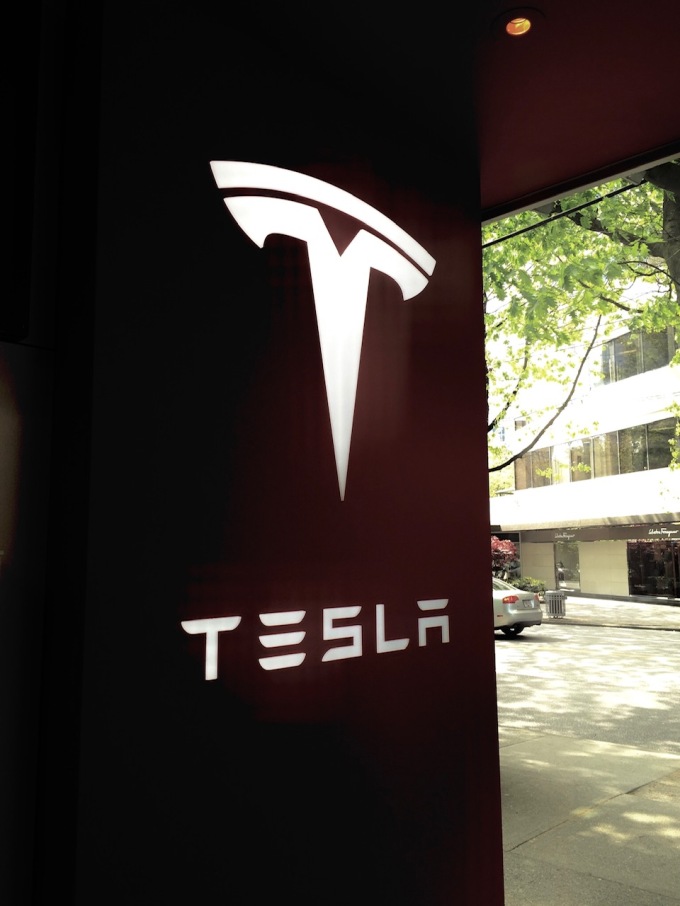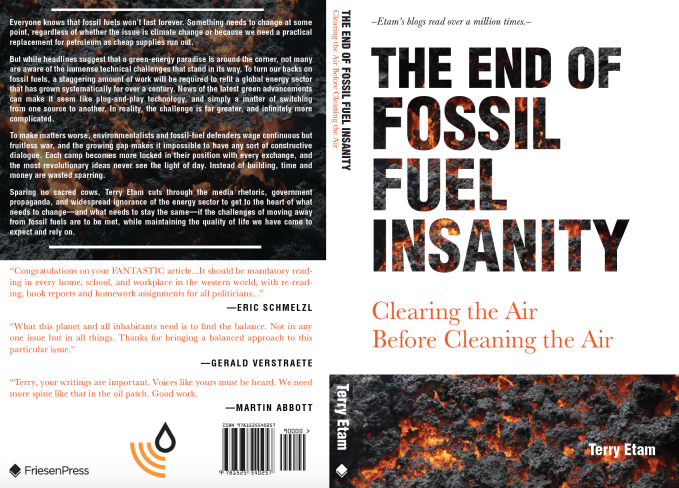“Kind of astonishing how disappointing” EV sales have been – so please don’t kill petroleum companies yet

Ugh, yet another article about EV sales, with a big frown and a question mark. Hey, I don’t like going here either. The goal of this site is to explain energy for non-energy folk. It would be great to get back to that. But with the way the media treats the “energy transition”, the most pertinent part of explaining energy to non-energy folk is to make sure they are aware how much garbage they are being fed. Just as with the recent news stories about the fish you think you’re getting served is something else entirely, the “facts” about an energy transition are the equivalent of ordering bluefin tuna and getting northern pike.
The media circus insists the EV transition is an unstoppable freight train because of groupthink, and also because of the investments being announced by major auto manufacturers. Of most significance, perhaps, is the ubiquitous ringmaster Elon Musk, who has an uncanny ability to schedule major product development announcements with bad results. It’s like he has a bank of Best Things In the World items to whip out whenever Tesla sales fall (which is happening a lot, in many countries).
Digging deeper, we see that European automakers are charging ahead with new EV models in large part because there is a gun to their head (particularly Volkswagen, who accepted an EV future in exchange for getting off lightly for the diesel emissions scandal (outside of a few billion in fines)), that they must manufacture and sell them even if the public doesn’t want them. And without massive subsidies, they really don’t want them. China’s EV sales have plummeted every month since July after government subsidies ended in June, a situation described by one auto publication as “EV market hits brick wall of reality”. In Britain, the BBC reports “ ‘Grave concern’ as sales of low emissions vehicles fall”. The EV website Inside EVs makes it starkly clear in tabular format: US EV sales were lower in July, August and September 2019 than in the corresponding months of 2018 – and that includes the massive impact of Tesla’s Model3 which only started moving in big numbers this year (and accounts for half of all EV sales in the US despite there being more than 40 EV models available for sale). In September 2019, for the first-time sales failed to grow compared to the same month of the prior year. Even Tesla couldn’t avoid discussing that sales collapsed even in the home state of California recently.
And it is only Tesla that has any success whatsoever. The Los Angeles Times recently pointed out that despite the introduction of 45 new electric and plug-in hybrid vehicles in the US last year, only a total of 325,000 were sold – and that was down 6.8% from 2018 (total US car/light truck sales in 2019: over 17 million). New introductions from Audi and Jaguar, massively hyped in the auto press and widely praised for performance, sold so poorly that they would never have survived if not EVs (Audi e-Tron: 5,369, Jaguar i-Pace: 2,594).
More charging stations and better range will help, but the EV takeover is not imminent, to put it mildly. Let’s keep an open mind for hydrogen development.
David Booth made an excellent point at the Driving.ca website: EV proponents relentlessly point to statistics such as “the average commute is less than 50 km” or “The average trip is less than 70 km” as an argument as to why EVs are perfectly adequate. Booth points out, correctly, that no one buys anything for the average – they buy it for the extremes. To borrow some of his examples, we buy a convertible because we can use it when conditions are perfect, even if that is rare. We buy mega-horsepower cars but almost never use all that power – but we buy them anyway. On average, we could get away with 40 horsepower cars, because that is all you need to get around and move down the highway at the speed limit. However, manufacturers can’t move a model of any sort unless it has at least 3 times that.
People also seek to avoid certain extremes, and rightly so. An internal combustion engine (ICE) car that runs out of gas on a desolate highway is infinitely different than an EV with a dead battery in the same spot. For the gasoline person, help is a jerry can away. Not always easy, but not insurmountable. For an EV? There are no options. There is no way to charge one of those beasts in a remote location; even if some whiz invented a service truck with a big booster, it would take you hours to get on your journey again.
EVs are most emphatically not the great leap forward that the car was over the horse, or the cell phone was over the land line. In both of those cases, people adopted the new technology in droves because it revolutionized the way they lived.
No one’s life is revolutionized by switching to an EV, other than the glow of greenness they feel, and even that is quite paltry in the context of each of our huge environmental footprints.
At risk of being nauseously repetitive, don’t believe what you read in the news about imminent, massive changes in energy consumption patterns. It’s no coincidence that the rise in this sort of blather coincides with the rise in the superhero phenomenon – both are fun but ultimately silly entertainment.

14 Comments
There are a few technological hurdles, that if we ever overcome them, I expect that electric vehicles will take over, and internal-combustion-powered vehicles will very rapidly become obsolete.
There are some very huge advantages to electric vehicles.
Consider that a typical; electric motor has just one moving part; compared to perhaps a hundred or more moving parts in a typical internal-combustion automobile engine.
An electric motor is also electrically-reversible, and has a much wider power band, which means that you don’t need nearly as complex a transmission to go with it.
All of this greatly-reduced mechanical complexity ought to mean a lower initial cost to manufacture, lower maintenance costs, and greater reliability and longevity.
An electric vehicle is also much more energy-efficient than an internal combustion engine. My understanding is that in a typical internal combustion engine, only about a third of the power released by burning the fuel comes out the crankshaft in a usable form. Most of it is wasted as heat, vibration, noise, etc. In fact, automobiles have a whole cooling system, just to keep the engine from burning itself up with all the wasted heat. That heat is energy that came from burning the fuel, but which contributes nothing to making the vehicle go.
The big problem is the battery. We still do not have any battery technology, that can store as much energy in a form usable to an electrical car, that is anywhere close to the amount of energy that can be stored in a similar mass and volume of gasoline, diesel fuel, or any other suitable fuel for an internal-combustion engine; nor can we charge a battery nearly as fast as we can pump fuel into a conventional automobile. And the best battery technology that we do have is very expensive, and has a limited usable life. That’s where internal combustion engines cars still have a very strong advantage, and will probably keep that advantage for quite some time yet to come.
LikeLike
They do have advantages and will at some point become prevalent in certain functions like inner city running around and taxis.
Yes the whole world would change with some big battery breakthroughs. Not easy though, and until they arrive the grid is the delimiting factor for any big energy transition
LikeLike
It’s going to be interesting to find out what the increase in electricity infrastructure is going to be, from the generation stations to the EV charging stations, as more and more EVs are sold and the demand for electricity rises.
What kind of demand will there be on the electricity infrastructure as more EVs hit the road?
What will happen to the cost of electricity?
How much more of the equivalent of “oil drilling”? Of “pipelines”?
How many more hydro dams? How many more solar panels? How many more power lines and trees cleared away – “right-of-way access” – to make way for the power lines and towers?
How will the indigenous peoples in those areas react?
LikeLike
All great questions, Gary. As a friend has always said to me, “there is no such thing as impact-free energy.” Not sure if either side of the political divide has actually considered this reality.
LikeLiked by 1 person
Indeed. Many, many issues will arise. Five percent EV is one thing, 20 another, and something like 70% is a world that is hard to contemplate (ask anyone that works on the electrical grid).
LikeLike
Try to understand, it’s about trying to reduce greenhouse bases.
LikeLike
Huh?
LikeLike
Internal combustion engines are just a transitional technology — like fax machines or dial phones. Electric motors are a superior technology over combustion engines for ground transportation, and so will inevitably win. But you don’t have to believe me — if you prefer ICEs, you can swap out the electric motor on your refrigerator for a combustion engine. 🙂
Innovation belongs to the upstarts. Electric vehicles will come from new companies like Tesla and Zero, not the old guard. The old guard will die, just like Xerox and Kodak and Nokia.
Embrace the future — it’s more fun than clinging to the status quo.
LikeLike
On the head, you just hit that nail.
LikeLiked by 1 person
An illuminating look at the challenges was written by Mark P. Mills, ” The New Energy Economy” an Exercise in Magical Thinking.
LikeLike
Thanks i will check it out!
LikeLike
«EVs are most emphatically not the great leap forward that the car was over the horse, or the cell phone was over the land line.»
Perhaps a “Great Leap Forward” in another sense.
https://en.wikipedia.org/wiki/Great_Leap_Forward
LikeLike
[…] EVs are most emphatically not the great leap forward that the car was over the horse, or the cell phone was over the land line. In both of those cases, people adopted the new technology in droves because it revolutionized the way they lived. EVs fit well in a few small markets, and not at all in most. Consumers know this, the media doesn’t, and auto manufacturers are between a rock and a hard place. Read on… […]
LikeLike
[…] “Kind of astonishing how disappointing” EV sales have been – so please don’t kill petroleum … […]
LikeLike